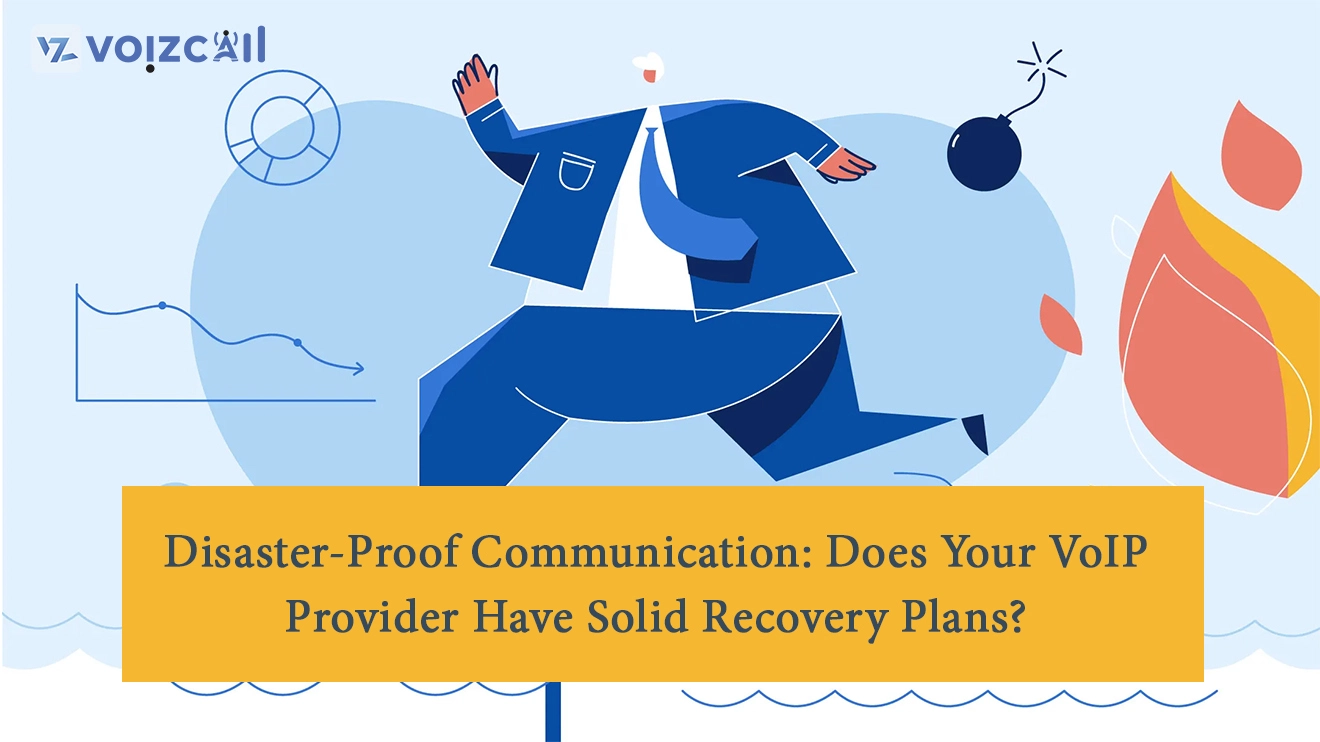


01/Jan/2024
In an era where business continuity is paramount, the resilience of your communication infrastructure, especially Voice over Internet Protocol (VoIP), is crucial. Natural disasters, cyber-attacks, or unforeseen events can disrupt traditional communication channels. It becomes imperative to assess if your VoIP provider has robust recovery plans in place.
1. Redundant Data Centers: A reliable VoIP provider should have redundant data centers strategically located. This redundancy ensures that if one data center faces an issue, operations seamlessly shift to another, guaranteeing uninterrupted service.
2. Disaster Recovery Protocols: Inquire about the disaster recovery protocols your VoIP provider has in place. This should include comprehensive plans for data recovery, system restoration, and continuity of service, minimizing downtime in case of an unexpected event.
3. Network Security Measures: Solid recovery plans go hand in hand with robust network security measures. Your VoIP provider should have stringent security protocols to protect against cyber threats, ensuring that communication remains secure during and after a disruptive event.
4. Scalability and Flexibility: A provider's ability to scale services during times of increased demand is crucial. A flexible infrastructure allows for quick adjustments to accommodate additional users or redistribute traffic, ensuring smooth communication even in challenging circumstances.
5. Regular Testing and Updates: Ask about the frequency of recovery plan testing and system updates. Regular drills and updates demonstrate a proactive approach, assuring clients that the VoIP provider is prepared for any scenario and continually refining its recovery strategies.
6. Geographic Redundancy: Geographic redundancy involves having infrastructure in diverse locations. This not only ensures resilience against regional disasters but also provides low-latency connections for users across different geographical areas.
7. Customer Support and Communication: Transparent and timely communication is key during a crisis. Assess your VoIP provider's customer support policies, ensuring that they have established communication channels to keep clients informed about the status of services during recovery efforts.
8. Data Backups: Reliable data backup mechanisms are critical. Your VoIP provider should regularly back up call data, configurations, and user information, facilitating quick recovery and minimizing data loss in case of an emergency.
By delving into these aspects, businesses can gauge the disaster preparedness of their VoIP providers. A provider with solid recovery plans not only ensures uninterrupted communication but also instills confidence in clients, knowing their operations are in capable and resilient hands.